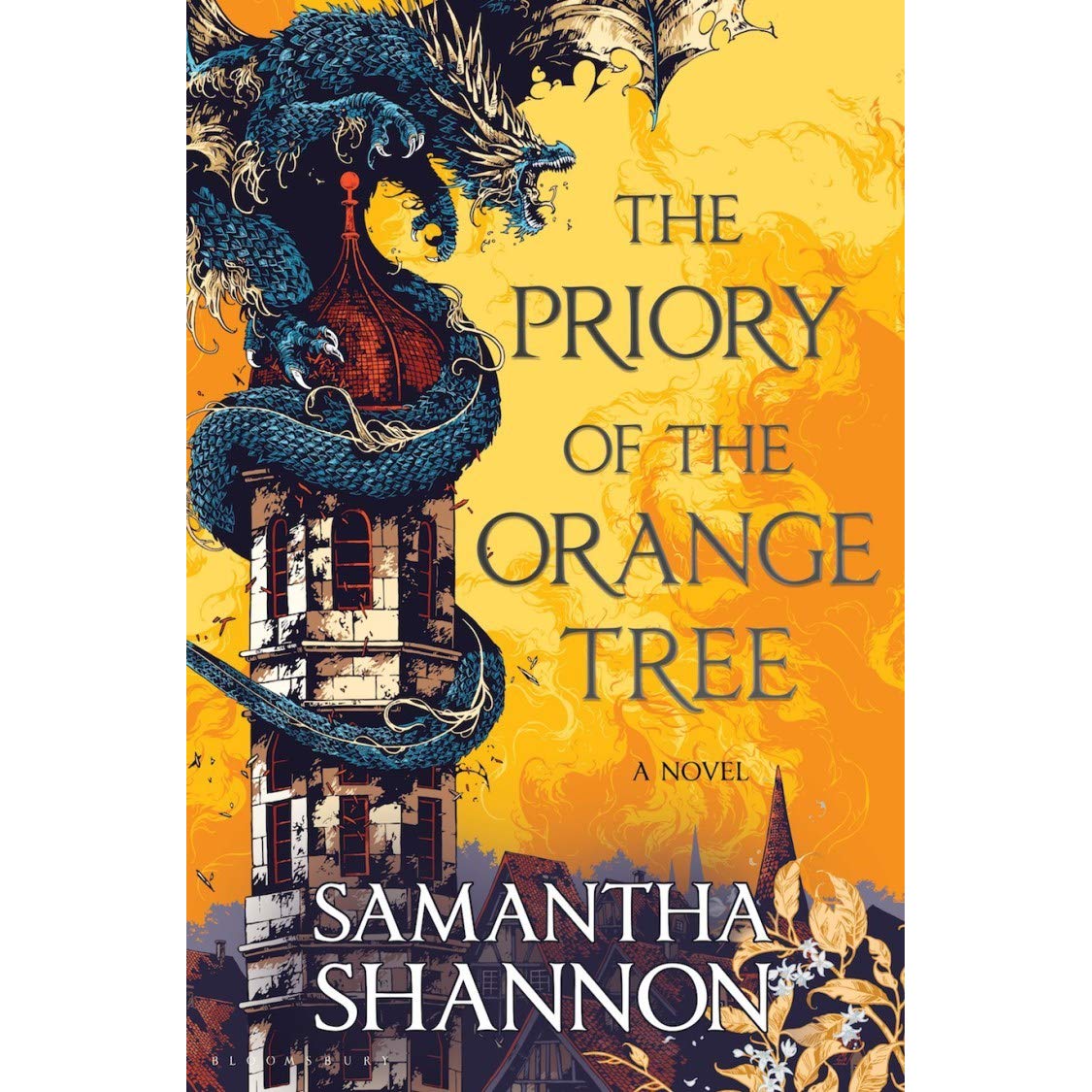Midterms season is probably not the best time to read an 848-page novel pertaining in no way to your exams, but the mind has curious ways of reorienting your priorities at the exact moment you most need them to remain resolute. That is the briefest explanation of how I came to read The Priory of the Orange Tree by Samantha Shannon, her standalone high fantasy released at the end of February. Reviews praised Priory for its feminism (something sorely lacking in a genre dominated by male writers who think that one sword-wielding female character excuses the overwhelming sexism of their work) and intricate world-building, which convinced me to buy a copy and read it in between studying for exams.
Priory follows, for the most part, the basic storyline of all fantasy novels: a thousand years or so ago, an evil force (in this case, a dragon called the Nameless One) threatened to destroy the world and was imprisoned, but will soon rise again; a group of heroes must rise to defeat him once and for all. But to distill Shannon’s novel into one sentence robs it of everything that makes it worthwhile. There is much in Priory that is rare within the genre, particularly the queer romance between two of its most well-developed characters and its feminist society. In Shannon’s world, “queendom” is as common a word as “kingdom”; there are no gendered property laws, same-sex marriage is ubiquitous, and women are as likely to be knights or politicians as anything else. Femininity and queerness are embraced, normalized, normal. For a reader accustomed to authors transplanting reality’s gendered hierarchies into imagined worlds, it is a pleasure to watch Shannon using the genre as it ought to be used: to subvert our understanding of the world we have through the worlds of which we dream.
Priory definitely falls short of subversion in its unnuanced villain—evil for evil’s sake—but the lack of complexity there allows human evils to take center stage. The first scene features one of the protagonists, Tané, choosing to condemn a stranger to prison and her city to possible plague exposure rather than lose her opportunity to become a dragonrider; her story from then on features the horrific consequences of her actions, beginning with the death of a beloved friend. Indeed, no character is glorified, despite the many opportunities to do so; Ead, a warrior-priestess of the titular Priory, and Sabran, a queen and figurehead of a religion that condemns the Priory as heretics, both allow the suffering of others to promote their own beliefs. No one is permitted the easy getaway of heroism.
Ultimately, the battle in Priory is not with the Nameless One but with the slippery nature of truth. Most of the action is built upon religious conflict and political ambition, the battles between faiths and individuals for their claim to truth and the power it provides. Ead, before she is tasked with becoming a bodyguard for Sabran, is told that “the problem with stories…[is that] the truth in them cannot be weighed.” Truth in this story is an unwieldy thing. Unlike comparable novels, there is no great prophecy to be fulfilled, no Chosen One, no mythic revelation. Shannon has created something that, on the surface, appears to mirror what has come before, but reveals itself to be a commentary on both the problems and possibilities of high fantasy.
Spencer Grayson is a freshman at Columbia University studying English.

